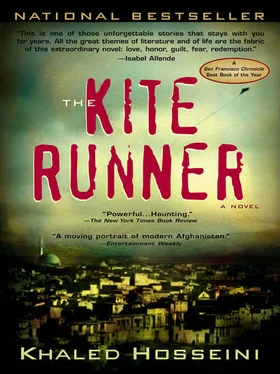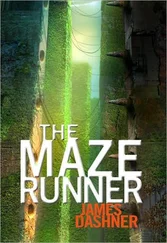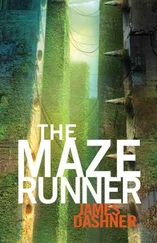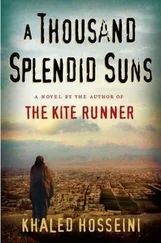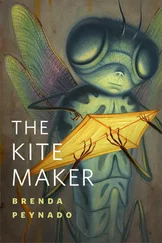I told you how we all celebrated in 1996 when the Taliban rolled in and put an end to the daily fighting. I remember coming home that night and finding Hassan in the kitchen, listening to the radio. He had a sober look in his eyes. I asked him what was wrong, and he just shook his head. “God help the Hazaras now, Rahim Khan sahib,” he said.
“The war is over, Hassan,” I said. “There’s going to be peace, Inshallah , and happiness and calm. No more rockets, no more killing, no more funerals!” But he just turned off the radio and asked if he could get me anything before he went to bed.
A few weeks later, the Taliban banned kite fighting. And two years later, in 1998, they massacred the Hazaras in Mazar-i-Sharif.
Rahim Khan slowly uncrossed his legs and leaned against the bare wall in the wary, deliberate way of a man whose every movement triggers spikes of pain. Outside, a donkey was braying and someone was shouting something in Urdu. The sun was beginning to set, glittering red through the cracks between the ramshackle buildings.
It hit me again, the enormity of what I had done that winter and that following summer. The names rang in my head: Hassan, Sohrab, Ali, Farzana, and Sanaubar. Hearing Rahim Khan speak Ali’s name was like finding an old dusty music box that hadn’t been opened in years; the melody began to play immediately: Who did you eat today, Babalu? Who did you eat, you slant-eyed Babalu ? I tried to conjure Ali’s frozen face, to really see his tranquil eyes, but time can be a greedy thing – sometimes it steals all the details for itself.
“Is Hassan still in that house now?” I asked.
Rahim Khan raised the teacup to his parched lips and took a sip. He then fished an envelope from the breast pocket of his vest and handed it to me. “For you.”
I tore the sealed envelope. Inside, I found a Polaroid photograph and a folded letter. I stared at the photograph for a full minute.
A tall man dressed in a white turban and a green-striped chapan stood with a little boy in front of a set of wrought-iron gates. Sunlight slanted in from the left, casting a shadow on half of his rotund face. He was squinting and smiling at the camera, showing a pair of missing front teeth. Even in this blurry Polaroid, the man in the chapan exuded a sense of self-assuredness, of ease. It was in the way he stood, his feet slightly apart, his arms comfortably crossed on his chest, his head titled a little toward the sun. Mostly, it was in the way he smiled. Looking at the photo, one might have concluded that this was a man who thought the world had been good to him. Rahim Khan was right: I would have recognized him if I had bumped into him on the street. The little boy stood barefoot, one arm wrapped around the man’s thigh, his shaved head resting against his father’s hip. He too was grinning and squinting.
I unfolded the letter. It was written in Farsi. No dots were omitted, no crosses forgotten, no words blurred together – the handwriting was almost childlike in its neatness. I began to read:
In the name of Allah the most beneficent,
the most merciful,
Amir agha, with my deepest respects,
Farzana jan, Sohrab, and I pray that this latest letter finds you in good health and in the light of Allah’s good graces. Please offer my warmest thanks to Rahim Khan sahib for carrying it to you. I am hopeful that one day I will hold one of your letters in my hands and read of your life in America. Perhaps a photograph of you will even grace our eyes. I have told much about you to Farzana jan and Sohrab, about us growing up together and playing games and running in the streets. They laugh at the stories of all the mischief you and I used to cause!
Amir agha,
Alas the Afghanistan of our youth is long dead. Kindness is gone from the land and you cannot escape the killings. Always the killings. In Kabul, fear is everywhere, in the streets, in the stadium, in the markets, it is a part of our lives here, Amir agha. The savages who rule our watan don’t care about human decency. The other day, I accompanied Farzana jan to the bazaar to buy some potatoes and naan . She asked the vendor how much the potatoes cost, but he did not hear her, I think he had a deaf ear. So she asked louder and suddenly a young Talib ran over and hit her on the thighs with his wooden stick. He struck her so hard she fell down. He was screaming at her and cursing and saying the Ministry of Vice and Virtue does not allow women to speak loudly. She had a large purple bruise on her leg for days but what could I do except stand and watch my wife get beaten? If I fought, that dog would have surely put a bullet in me, and gladly! Then what would happen to my Sohrab? The streets are full enough already of hungry orphans and every day I thank Allah that I am alive, not because I fear death, but because my wife has a husband and my son is not an orphan.
I wish you could see Sohrab. He is a good boy. Rahim Khan sahib and I have taught him to read and write so he does not grow up stupid like his father. And can he shoot with that slingshot! I take Sohrab around Kabul sometimes and buy him candy. There is still a monkey man in Shar-e-Nau and if we run into him, I pay him to make his monkey dance for Sohrab. You should see how he laughs! The two of us often walk up to the cemetery on the hill. Do you remember how we used to sit under the pomegranate tree there and read from the Shahnamah ? The droughts have dried the hill and the tree hasn’t borne fruit in years, but Sohrab and I still sit under its shade and I read to him from the Shahnamah . It is not necessary to tell you that his favorite part is the one with his namesake, Rostam and Sohrab. Soon he will be able to read from the book himself. I am a very proud and very lucky father.
Amir agha,
Rahim Khan sahib is quite ill. He coughs all day and I see blood on his sleeve when he wipes his mouth. He has lost much weight and I wish he would eat a little of the shorwa and rice that Farzana jan cooks for him. But he only takes a bite or two and even that I think is out of courtesy to Farzana jan. I am so worried about this dear man I pray for him every day. He is leaving for Pakistan in a few days to consult some doctors there and, Inshallah , he will return with good news. But in my heart I fear for him. Farzana jan and I have told little Sohrab that Rahim Khan sahib is going to be well. What can we do? He is only ten and he adores Rahim Khan sahib. They have grown so close to each other. Rahim Khan sahib used to take him to the bazaar for balloons and biscuits but he is too weak for that now. I have been dreaming a lot lately, Amir agha. Some of them are nightmares, like hanged corpses rotting in soccer fields with bloodred grass. I wake up from those short of breath and sweaty. Mostly, though, I dream of good things, and praise Allah for that. I dream that Rahim Khan sahib will be well. I dream that my son will grow up to be a good person, a free person, and an important person. I dream that lawla flowers will bloom in the streets of Kabul again and rubab music will play in the samovar houses and kites will fly in the skies. And I dream that someday you will return to Kabul to revisit the land of our childhood. If you do, you will find an old faithful friend waiting for you.
May Allah be with you always.
Hassan
I read the letter twice. I folded the note and looked at the photograph for another minute. I pocketed both. “How is he?” I asked.
“That letter was written six months ago, a few days before I left for Peshawar,” Rahim Khan said. “I took the Polaroid the day before I left. A month after I arrived in Peshawar, I received a telephone call from one of my neighbors in Kabul. He told me this story: Soon after I took my leave, a rumor spread that a Hazara family was living alone in the big house in Wazir Akbar Khan, or so the Taliban claim. A pair of Talib officials came to investigate and interrogated Hassan. They accused him of lying when Hassan told them he was living with me even though many of the neighbors, including the one who called me, supported Hassan’s story. The Talibs said he was a liar and a thief like all Hazaras and ordered him to get his family out of the house by sundown. Hassan protested. But my neighbor said the Talibs were looking at the big house like – how did he say it? – yes, like ‘wolves looking at a flock of sheep.’ They told Hassan they would be moving in to supposedly keep it safe until I return. Hassan protested again. So they took him to the street-”
Читать дальше
